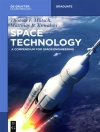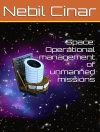Following the first comprehensive transdisciplinary dialogue on humans in outer space which resulted in ‘Humans in Outer Space — Interdisciplinary Odysseys’, the European Science Foundation (ESF), the European Space Agency (ESA), and the European Space Policy Institute (ESPI) have continued and deepened this transdisciplinary dialogue, which can now be found in Humans in Outer Space — Interdisciplinary Perspectives. Going further than regarding humans as better-than-robot tools for exploration, it investigates the human quest for odysseys beyond Earth’s atmosphere and reflects on arising issues related to Europe’s role among the States conducting human exploration. It provides perspectives related to governance, management of space exploration, space settlements, the role of astronauts in the future as well as related to the encounter of extraterrestrial life.
Содержание
Prefaces
Frank De Winne, Milena Zic-Fuchs and Jean-Paul Swings
Introduction: from “odysseys” to “perspectives” – towards new interdisciplinary approaches to humans in outer space.
Ulrike Landfester, Nina-Louisa Remuss, Kai-Uwe Schrogl and Jean-Claude Worms
CHAPTER 1 Politics and society
1.1 The political context for human space exploration.
Kai-Uwe Schrogl
1.2 Who will own outer space? Governance over space resources in the age of human space exploration.
Kurt Mills
1.3 Managing space, organising the sublime.
Martin Parker
1.4 Astronauts: from envoys of mankind to combatants.
Nina-Louisa Remuss
1.5 Space inclusiveness and empowerment, or how The Frontier becomes a mirror.
Adrian Belu
1.6 A school curriculum for the children of space settlers.
Alan Britton
1.7 Ethics and extraterrestrial life.
Charles Cockell
1.8 Encounters among the stars – exosociological considerations.
Michael T. Schetsche
CHAPTER 2 History and religion
2.1 Astrocognition: Prolegomena to a future cognitive history of exploration.
David Dunér
2.2 Looking back to Earth.
S. J. Gustav Schörghofer
2.3 Alien life: Remarks on the exobiological perspective in recent terrestrial biology.
Thomas Brandstetter
CHAPTER 3 Culture and psychology
3.1 Laokoon in Outer Space? Towards a transformative hermeneutics of Art.
Ulrike Landfester
3.2 Music and the outer space – the means of universal communication or a form of art?
Anna G. Piotrowska
3.3 From space suits to space couture: a new aesthetic.
Mark Timmins
3.4 Looking back, looking forward and aiming higher: next generation visions on humans in outer space.
Agnieszka Lukaszczyk, Bejal Thakore and Juergen Schlutz
3.5 Humans in outer space: Existential fulfillment or frustration? Existential, psychological, social and ethical issues for crew on a long-term space mission beyond Earth orbit.
Berna van Baarsen
CHAPTER 4 Annex
4.1 Useful web-addresses related to human exploration
4.2 The Vienna Vision on Humans in Outer Space
4.3 Summary Report of the Review of U.S. Human Space Flight Plans Committee
4.4 The Global Exploration Strategy Framework:The Framework for Coordination
(Executive Summary, May 2007)
4.5 Overview of Europe´s contribution to the ISS
4.6 SETI.s Declaration of Principles Concerning Activities Following the Detection of Extraterrestrial Intelligence
4.7 Extract from “Mars Life” by Ben Bova
4.8 Extract from “The Dream – or posthumous work on lunar astronomy” by Ludwig Kepler
4.9 Religion and Human Space Flight
4.10 An historian.s viewpoint – Historical approaches to human space flight and the “Humans in Outer Space” project.
Luca Codignola
4.11 The Mars 500 isolation experiment
About the authors
List of acronyms
List of figures and tables
Acknowledgements












